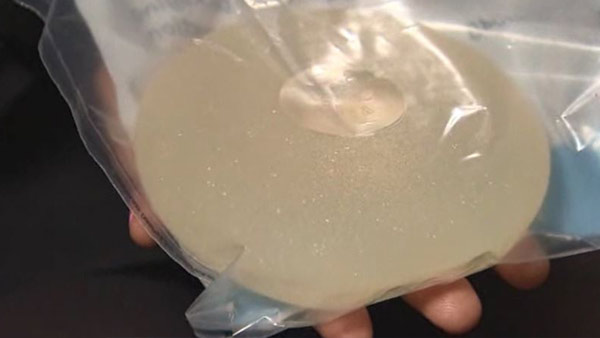In 2011, the FDA found a possible association between breast implants and anaplastic large cell lymphoma, a rare type of non-Hodgkin’s lymphoma and on Tuesday they announced that nine women have died from the cancer.
In total, the FDA has received 359 reports of breast implant-associated anaplastic large cell lymphoma. Of the 359 reports, 231 included info about the type of implant; 203 were textured implants and 28 involved smooth implants, 126 reported the use of saline-filled implants. These findings suggest that while women with implants still have a very low risk of developing ALCL, it’s still an increased risk compared to women without implants.
The FDA recommends that doctors and patients with implants and BIA-ALCL understand:
- Most confirmed cases of BIA-ALCL have occurred in women with textured breast implants. Provide the manufacturers’ labeling as well as any other educational materials to your patients before surgery and discuss with them the benefits and risks of the different types of implants.
- Consider the possibility of BIA-ALCL when you have a patient with late onset, persistent peri-implant seroma. In some cases, patients presented with capsular contracture or masses adjacent to the breast implant. If you have a patient with suspected BIA-ALCL, refer her to an appropriate specialist for evaluation. When testing for BIA-ALCL, collect fresh seroma fluid and representative portions of the capsule and send for pathology tests to rule out BIA-ALCL. Diagnostic evaluation should include cytological evaluation of seroma fluid with Wright Giemsa stained smears and cell block immunohistochemistry testing for cluster of differentiation (CD) and Anaplastic Lymphoma Kinase (ALK) markers.
- Develop an individualized treatment plan in coordination with the patient’s multi-disciplinary care team. Consider current clinical practice guidelines, such as those from the Plastic Surgery Foundation or the National Comprehensive Cancer Network (NCCN) when choosing your treatment approach.
- Report all confirmed cases of ALCL in women with breast implants to the FDA. In some cases, the FDA may contact you for additional information. The FDA will keep the identities of the reporter and the patient confidential.
- Submit case reports of BIA-ALCL to the PROFILE Registry to contribute to a better understanding of the causes and treatments of BIA-ALCL.
I Took Mine Out
While it’s true that BIA-ALCL is rare it does appear to develop more frequently in women with textured implants than in women with smooth-surfaced implants, therefore, if you still want to go ahead with implants, make sure to do your research AND talk to your health care provider about the benefits and risks of textured-surface vs. smooth-surfaced implants.
RELATED ARTICLES:
- Is Breast Implant Disease Real?
- Crystal Hefner Shares Photo After Having Her Breast Implants Removed: ”The New Me’
And, while I am not a doctor and can’t give you any medical advice, I can say from personal experience that they are just not worth it. I had mine taken out and I’ve never regretted it. Should you decide to keep yours or get implants, make sure to follow your doctor’s instructions on how to monitor them. If you notice any changes, contact your doctor right away to schedule an appointment.
Source: WFLA












